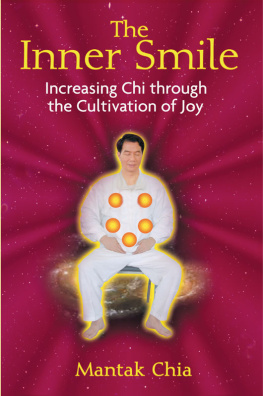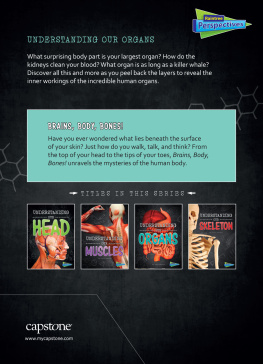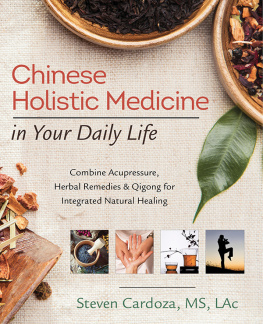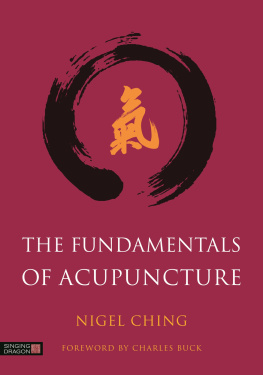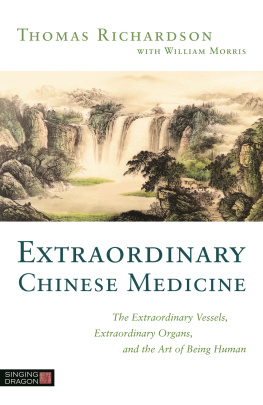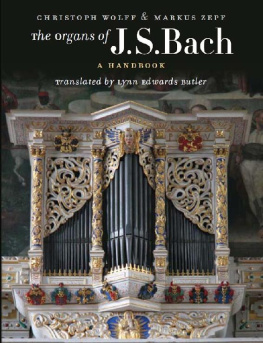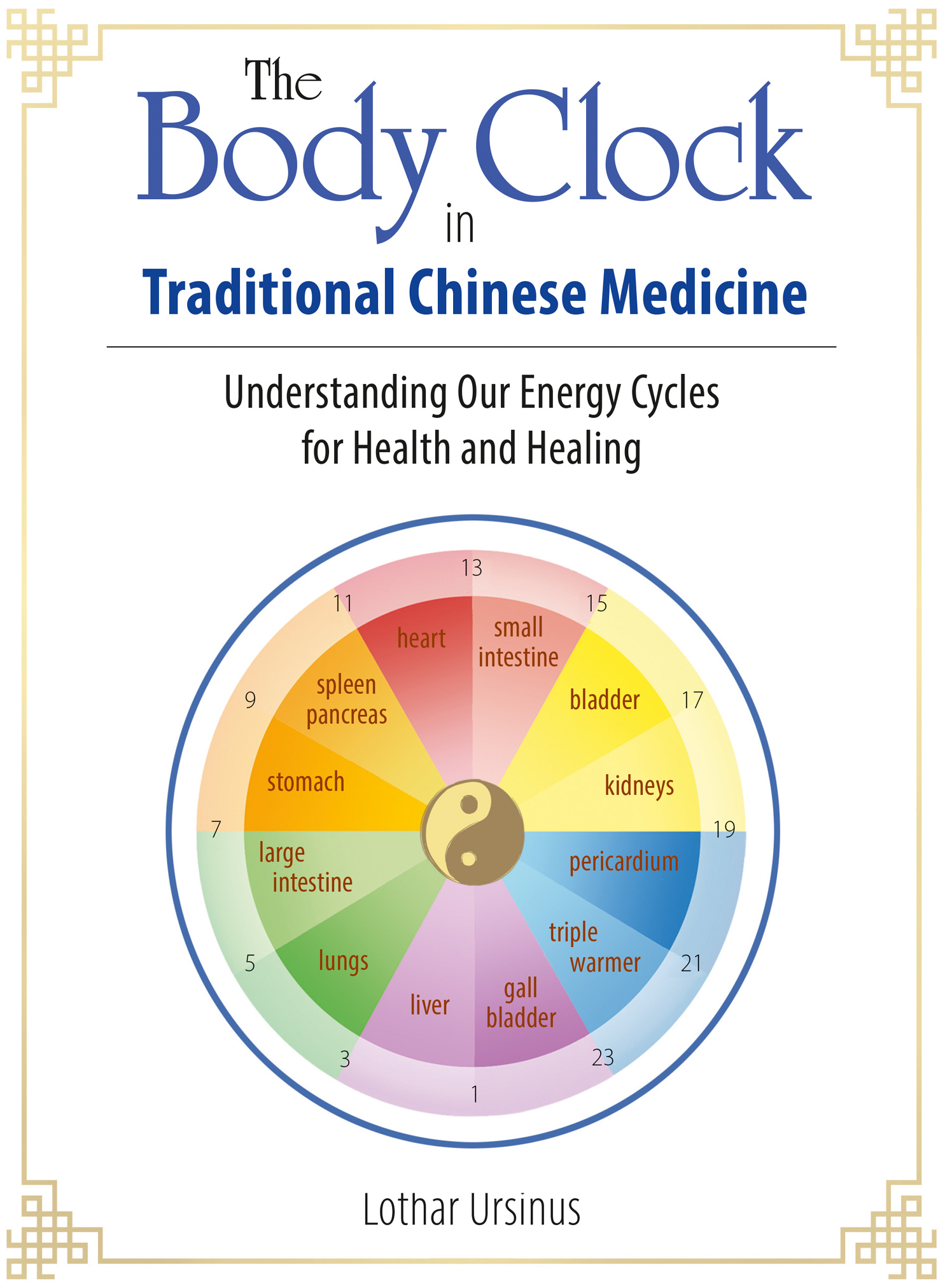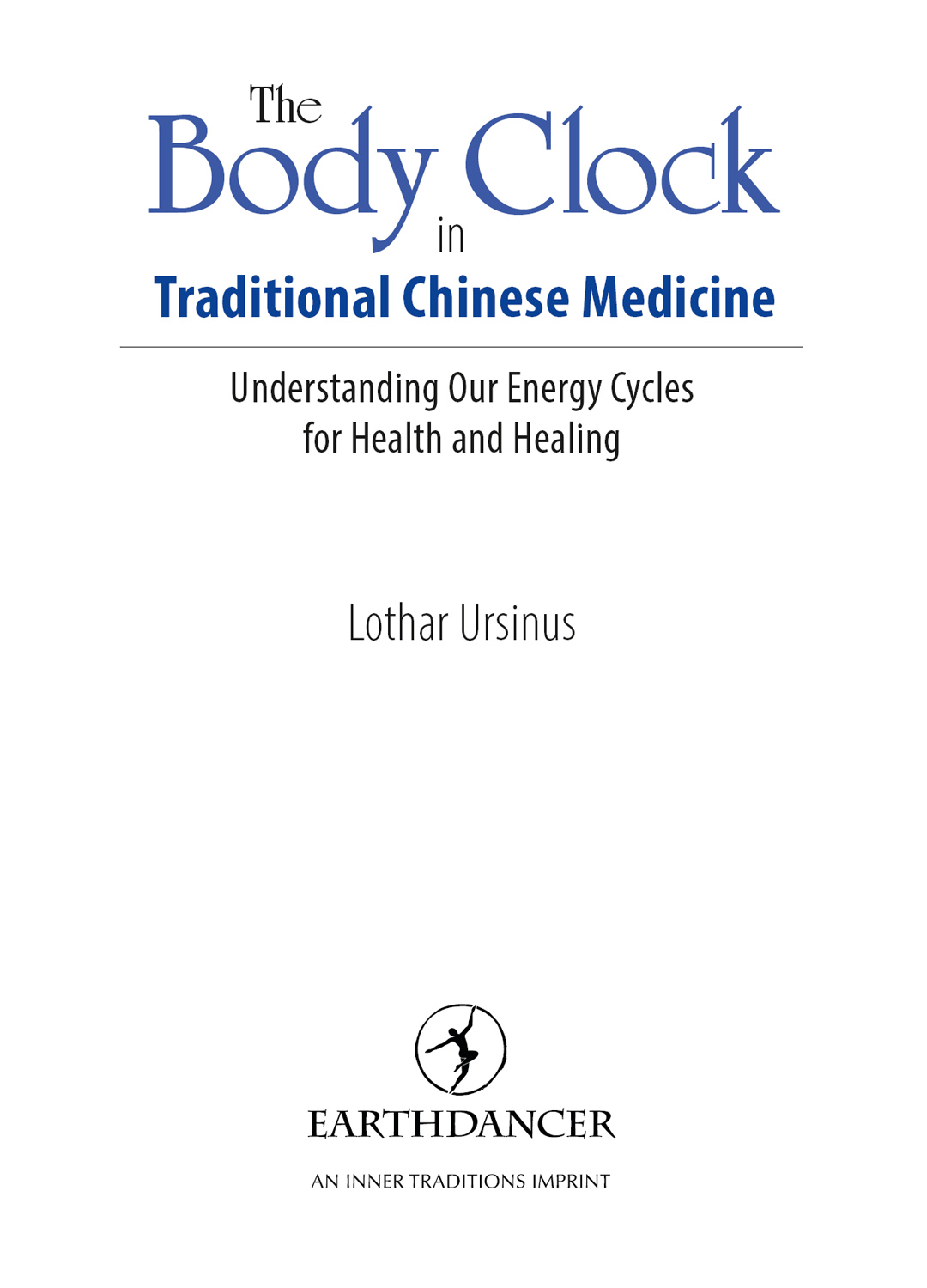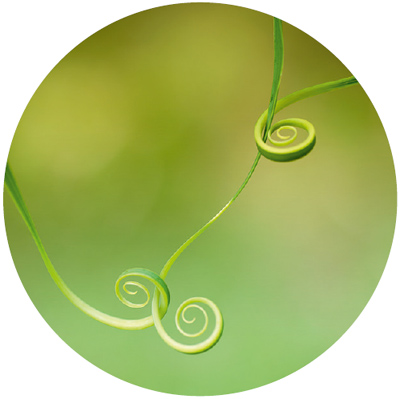Lothar Ursinus - The Body Clock in Traditional Chinese Medicine: Understanding Our Energy Cycles for Health and Healing
Here you can read online Lothar Ursinus - The Body Clock in Traditional Chinese Medicine: Understanding Our Energy Cycles for Health and Healing full text of the book (entire story) in english for free. Download pdf and epub, get meaning, cover and reviews about this ebook. year: 2020, publisher: Inner Traditions/Bear & Company, genre: Home and family. Description of the work, (preface) as well as reviews are available. Best literature library LitArk.com created for fans of good reading and offers a wide selection of genres:
Romance novel
Science fiction
Adventure
Detective
Science
History
Home and family
Prose
Art
Politics
Computer
Non-fiction
Religion
Business
Children
Humor
Choose a favorite category and find really read worthwhile books. Enjoy immersion in the world of imagination, feel the emotions of the characters or learn something new for yourself, make an fascinating discovery.

- Book:The Body Clock in Traditional Chinese Medicine: Understanding Our Energy Cycles for Health and Healing
- Author:
- Publisher:Inner Traditions/Bear & Company
- Genre:
- Year:2020
- Rating:5 / 5
- Favourites:Add to favourites
- Your mark:
The Body Clock in Traditional Chinese Medicine: Understanding Our Energy Cycles for Health and Healing: summary, description and annotation
We offer to read an annotation, description, summary or preface (depends on what the author of the book "The Body Clock in Traditional Chinese Medicine: Understanding Our Energy Cycles for Health and Healing" wrote himself). If you haven't found the necessary information about the book — write in the comments, we will try to find it.
Explains the Organ Body Clock from Traditional Chinese Medicine and which organs and meridians are dominant during different hours of the day
Describes exactly what happens inside the body during each organs active time and shows what we can do to support the organs with plant medicine, homeopathy, our behavior, and simple daily practices
Explores the mental and emotional states each organ is related to and their connections to the teeth, the other organs, and the Five Elements of TCM
All of our organs are energetically interconnected. They each have regular rest and active cycles throughout the day, with different organs becoming dominant at different hours. In Traditional Chinese Medicine, this is known as the Organ Body Clock.
In this accessible guide to the body clock in Traditional Chinese Medicine, the author shows how to support the bodys natural rhythms of activity, recognize the bodys signals of imbalance and find their sources, and achieve healing on the physical and energetic levels. He explains how the body clock can provide deep insight into our physical and energetic health. For example, if we always wake up at a certain time at night, we should look up which organ is associated with that time, which will lead us to discover the part of our body that needs special attention and help. The author explores the 12 major organs of the body, describing their active and rest hours, their function inside the body, the mental and emotional states they are related to, and their connections to the teeth, the other organs, and the Five Elements of TCM. The author describes exactly what happens inside the body during each organs active time and shows what we can do to support the organs with plant medicine, homeopathy, our behavior, and simple daily practices.
By working with the body clock and better understanding our bodies rhythms, we more easily trace our ailments and conditions to their source for faster relief, sustainable healing, and energetic balance.
Lothar Ursinus: author's other books
Who wrote The Body Clock in Traditional Chinese Medicine: Understanding Our Energy Cycles for Health and Healing? Find out the surname, the name of the author of the book and a list of all author's works by series.


